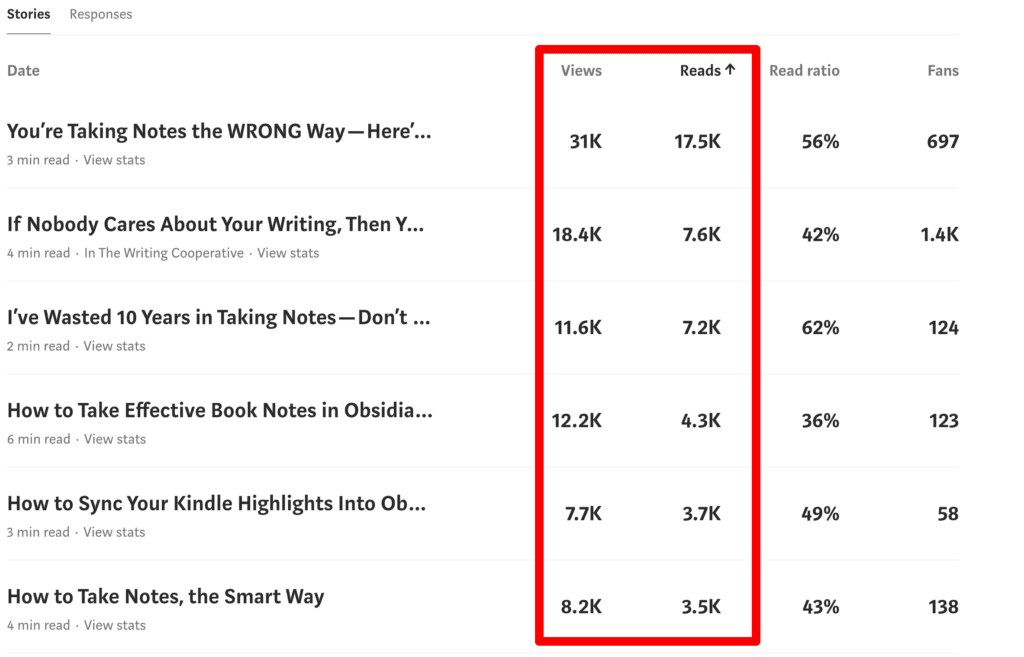20 Great Reasons For Deciding On Email List Sellers
Wiki Article
What Should I Look Into Prior To Buying An Email List Of Hematologists?
It's important to consider several factors when purchasing an hematologist's mailing list to ensure that the list you buy is up-to-date, in line with the law, and pertinent to marketing goals. Below are a few important factors to consider. Quality and Accuracy of the Data
Source of data: Verify the provider's use of trustworthy sources such as professional directories, databases, or opt-ins from hematologists. The accuracy with which the contacts were gathered will indicate how reliable the list is.
Verification and updates: Ask the provider for information on their processes for verifying data. Email addresses that are inactive or incorrect should be removed. It is important to update the list regularly, as healthcare professionals may modify their roles or the institution they work for.
Segmentation and Specialization: Make sure that the list is exclusively for hematologists. It can also be segmented by location, experience level or hospital affiliation as well as subspecialties. Well-segmented lists help target your outreach more effectively.
2. Legal Regulations
Data Privacy Laws â Ensure compliance with the privacy laws that govern data, including the General Data Protection Regulations (GDPR) for Europe as well as the California Consumer Privacy Acts (CCPA) for the U.S. and other applicable laws. It means that the emails should be gathered only with the consent of the user.
CAN-SPAM Act: In the U.S.A. be sure your list conforms to the with the CANSPAM Act, which governs commercial emails communications. Failure to comply could lead to penalties and the flagging of your email as spam.
Opt-in Consent: Only include doctors on the list who have explicitly consented to receive emails from different parties. Unsolicited emails sent to patients who have not consented could result in poor engagement or legal issues.
3. Provider Reputation
Verify the credibility of the company. Find reviews, testimonials, and case studies to confirm that the reliability of the business. If a company has a proven track record is more likely to provide quality data that is in compliance with.
Transparency: Choose a provider who is open about where and how data was collected. It is best to avoid companies who aren't clear about method of collecting data.
Customer Service: It is important to select a provider who provides excellent customer service. Support is essential for those who require help with technical queries, adjusting your list, or compliance issues.
4. Cost as well as Return on Investment (ROI)
Pricing Model: Take into consideration the pricing structure offered, whether pay-per-contact, flat fee, or subscription-based. Make sure the cost corresponds to the return on investment. This means that you must balance your marketing budget with high-quality lists.
Refund or Replacement Policy: A reliable provider will offer a refund or replacement policy for inactive or outdated email addresses. Be sure to read the terms of this policy prior to purchasing.
Value for money: Check the features of the list (such as segmentation, and the data accuracy guarantee provided by the company) with the price. If the quality of data in the list is not good, the cheapest list might not be the best option.
5. Use and Ownership of Data
Multi-Use vs. Single Use Multiple Use: Be aware of the conditions of use for the list of email addresses. You may be able to utilize the email list for a single campaign with some providers, but others will allow unlimited use.
Exclusive vs. Shared Lists: Determine if this email list is exclusively yours or shared with others. Exclusive lists have a greater percentage of engagement because people on the list are more likely to not receive numerous marketing emails.
6. Data Integration and Format
Integration with CRM or email Tools - Ensure that the email list can be easy to integrate with your CRM platform or email marketing tool. The list must be in standard formats, such as CSV and Excel. This allows for easy integration.
Easy to Use: Examine how easy the list can be managed. Lists that are hard to sort or manage could reduce the effectiveness of your campaign.
7. Ethical Questions
Relevance for Hematologists Be sure that the email you send out is appropriate to hematologists. If you send content to hematologists that does not align with their expertise could result in poor engagement and will affect your reputation as a brand.
Beware of spamming methods: Avoid bombarding recipients with too many emails. Sending out too many emails could harm the reputation of your email sender.
A list of doctors' email addresses is a great way to market your business specifically to a specific audience, but you must be cautious when you purchase one. To ensure you're getting a list with high quality and accuracy, you should focus on the accuracy of the data as well as the conformity with privacy laws and the track record and reputation of the provider. Prioritizing segmentation as well as the legal requirements and ethical advertising will help you maximize ROI and keep your brand's name in good standing. Have a look at the recommended hematologists email list for blog tips.

What Factors Should I Consider When Buying A Urgent Care Email List?
It's important to consider several aspects when buying an email list for urgent treatment. This will ensure that the list you buy is correct, compliant with law, and pertinent to your marketing goals. The most important considerations are: 1. Data Quality and Accuracy
The source of the data Be sure that the provider you choose to use collects its information from reliable sources like medical association databases, professional directories, or health databases. Avoid lists made using scraping or other methods that are not reliable as they could have inaccurate or outdated data.
Verification process: Confirmation the list of email addresses is updated regularly and verified. A reliable email provider follows a rigorous verification procedure that eliminates old, invalid or duplicate emails. This will improve delivery and decrease bounce rates.
Segmentation The list should include options to segment by the location (city or state) along with the size and nature of the urgent care center, the type of services provided (e.g. Diagnostics, Pediatrics), and roles for decision-makers (e.g. Medical directors, practice owners). Lists with a specific focus can increase your outreach and increase engagement.
2. Legal Regulations
Data Privacy Laws: Ensure that the list complies with relevant laws on data protection, such as the General Data Protection Regulation (GDPR) in Europe, the California Consumer Privacy Act (CCPA) in the U.S., and other local regulations. This means email addresses should be gathered with consent and handled in accordance with lawful processes.
CAN SPAM Act: In the U.S.A. all marketing emails are subject to the CAN SPAM Act. Include your physical address, stay clear of misleading subject lines and provide a clear opt out mechanism. Non-compliance with the law can result in fines or damage to your business's reputation.
Opt-In Consent: Make sure the email addresses included on the list were acquired with an explicit opt-in consent which means that the recipients have opted-in to receive marketing communications from third-party companies. This decreases the risk of receiving complaints about spam or legal concerns.
3. Provider Reputation
Established Provider: Choose a provider with a proven track record of delivering top-quality emails that are compliant. Look through testimonials, case studies, and testimonials from past clients to gauge the service's satisfaction.
Transparency - The service provider should be transparent regarding the data source and when it was changed. It could be an indication of poor data if the service provider fails to provide clear answers regarding the method of collecting data.
Customer Support: Having a strong support for customers is essential in case you require help in relation to problems with your list, customisation, or even the need to comply. You'll get more value out of your list if the provider you use is responsive.
4. Cost and Return on Investment (ROI)
Pricing Models: Email list providers generally have different pricing models, such as pay-per-contact or flat costs. Pricing models must be compared to your marketing budget, as well as the ROI goals. The cost of the list with the quality and relevance of the data.
Refund or replacement policy. Reputable providers offer the option of refunds or replacement policies when the majority of emails are in error or non-deliverable. Clarify the policy terms before buying.
Value for Money: Rather than selecting the most affordable option look for lists that offer value through precise data and a thorough segmentation. Making the investment in a high-quality list will boost the engagement of your customers and provide you a better return on the investment.
5. Ownership and use of data
Single-Use or Multi-Use? Clarify whether you can utilize this list once for a campaign, or multiple times. Multi-use lists are better when your intention is to launch several outreach campaigns.
Exclusive vs. Lists shared: Determine the list's exclusivity or shared. A shared list could cause the recipients becoming tired, as they may receive emails from several organizations.
6. Data Integration and Format
CRM Compatibility: Ensure that the email list is delivered in a format compatible with your customer relationship management (CRM) or marketing email platform like CSV or Excel. This ensures a smooth and rapid integration.
Accessibility: The email list should be easy to maintain and segment on your own specific requirements. A well-organized list can make targeted and personalized emails more effective.
7. Ethical Questions
Relevance of Content Urgent care professionals are often busy, so your outreach should be relevant and valuable. Your messaging should be tailored to their specific needs. This might include medical equipment, technology for healthcare or other supplies specifically designed for urgent health operations. Inadequate content can harm your brand's reputation and cause a decrease in engagement.
Avoiding Spam: Be mindful of how frequently you email. Inadequate or unwelcome emails could create spam complaints and diminish your sender reputation.
The final sentence of the article is:
When buying an urgent care email list, you should focus on data accuracy, legal compliance, and the credibility of the service. The lists should be regularly segmented and adhere to data privacy regulations. With a well-targeted, high-quality list and delivering content that's relevant, you can maximize engagement and improve the return on investment. Follow the most popular urgent care email list for more guide.
